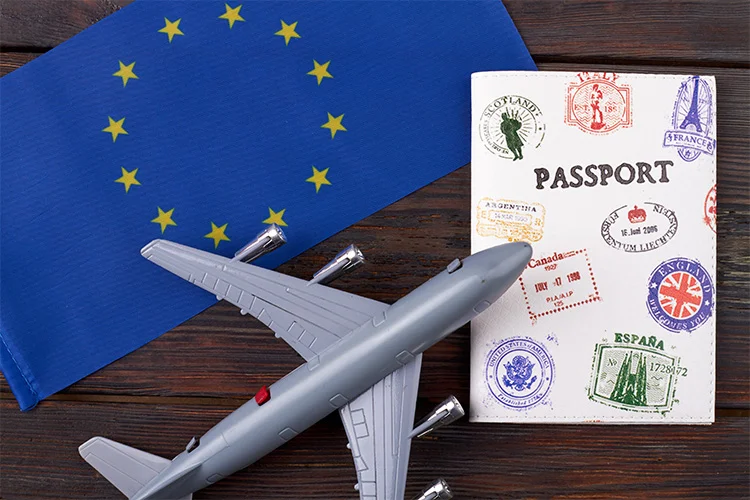Islamabad, 17 Apr 2025: The European Union is moving forward with a proposal to tighten Schengen visa-free rules, signaling a major policy recalibration that could impact millions of international travelers.
This shift would enhance the EU’s ability to temporarily suspend visa-free access for citizens from countries currently enjoying this privilege.
Visa Exemption Framework Under Review
The revised legislation, expected later this year, is designed to improve the EU’s mechanisms for responding to migration surges, security threats, and foreign policy concerns.
READ MORE:
European Union Grants Schengen Visa-Free Access to Muslim Country
The bloc currently allows citizens from 61 non-EU nations to enter the Schengen Area without a visa, but under the new rules, that status could be withdrawn more easily under defined conditions.
Who Could Face Travel Changes?
Countries spanning various continents may see a change in their visa-free status. Affected regions include:
- North America & Caribbean: U.S., Canada, Mexico, Antigua and Barbuda, Saint Lucia, Dominica, Barbados
- Latin America: Brazil, Argentina, Chile, Colombia, Uruguay, Peru, Venezuela, among others
- Europe (non-EU): United Kingdom, Ukraine, Georgia, Serbia, Albania, Bosnia and Herzegovina
- Asia-Pacific & Africa: Japan, South Korea, UAE, Singapore, Australia, New Zealand, Mauritius, Seychelles
These travelers may soon face added paperwork, costs, and processing times to enter the EU should the new framework be enacted.
EU Set to Tighten Schengen Visa Rules for Security and Stability
This recalibration is being driven by multiple concerns. Among them are:
- Unlawful Migration: Even with a recent 31% drop in illegal border entries, EU leaders are seeking more tools to preempt future waves.
- Security Threats: Officials cite “hybrid threats” from countries like Russia and Belarus, where migration manipulation is allegedly being used for geopolitical leverage.
- Golden Passport Risks: Citizenship-by-investment schemes offered by some countries in return for capital are being seen as backdoor entry points, lacking rigorous background checks.
- Human Rights & Rule of Law: Visa waivers could also be suspended if a country is found violating international obligations or engaging in human rights abuses.
What Are Hybrid Threats?
These involve the coordinated use of misinformation, cyber-attacks, economic pressure, or irregular migration to weaken the EU’s borders and institutions.
Streamlined Suspension Mechanism
Previously, suspending visa privileges required unanimous consent from all EU members. The new policy would allow a qualified majority vote to take swift action. Grounds for suspension may include:
- Unexpected rise in undocumented migration
- Breakdown in diplomatic relations
- Public safety risks
- Violations of international norms
READ MORE:
Top 10 Easiest Countries to Get a Schengen Visa in 2025
Implications for Global Travelers
If suspended, entry into the Schengen Zone will require a formal visa application, processing fees, interviews, and extended waiting periods. This could affect travel for tourism, education, business, and even family reunions.
With a focus on national security, legal compliance, and strategic alliances, Europe appears set to embrace a more cautious and controlled approach to border access.
